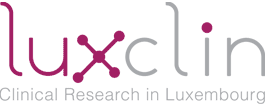

Carotenoids are responsible for the yellowish-orange-red pigmentation of many fruits and vegetables. While they are not essential for human life, their intake with food and their concentration in our plasma have been linked in many studies to chronic diseases, such as diabetes. At LIH, we investigated the influence of minerals (e.g. calcium and magnesium) and protein on the intake of carotenoids. During our Translational Research Day 2022, Torsten Bohn, PhD and Guilherme Marques presented their study and its first results: https://bit.ly/3HWiHh7 (Video in German)
Although recent advances have been made in cancer diagnosis and therapy, cure is rare for patients diagnosed with aggressive and metastatic tumours. Even after treatment with surgery, radiation and chemotherapy, the tumour may continue to progress and recur. The heterogeneity of the disease and the mechanisms of resistance require personalized approaches to propose adapted therapies . "Personalized Functional Profiling" (PFP), in partnership with researchers from the Luxembourg Institute of Health (LIH), clinicians from Luxembourg hospitals (HRS and CHL) and the National Health Laboratory (LNS), aims to fulfil this need, by copying a tumour and testing many different selected drugs against the copies in the lab . During our Translational Research Day 2022, Berna Marc, MD, Michel Mittelbronn, MD, Tatiana Michel, PhD, presented this innovative concept of personalized predictive medicine to cure cancer: https://bit.ly/37AzIRw (Video in French)
The search for drugs against Covid-19 remains as necessary as in the early days of 2020. Treatments aim to fight the virus on two levels. During the phase when the virus multiplies in the body after infecting it in order to stop the progression of the virus or during the inflammation phase. During our Translational Research Day 2022, Therese Staub, MD and Lamia Skhiri, PhD presented different therapeutic strategies, which target the virus or the inflammation caused by the virus. https://bit.ly/3DcRCFB (Video in French)
According to WHO in 2020 cancer was responsible for 10 million deaths worldwide, with breast cancer representing 2.6 million deaths. Metastatic cancer is when the cancer (cancer cells) has spread to other organs. There is no cure for metastatic breast cancer, but the treatment possibilities are multiple and for the last 2 decades the improvement and extension of the quality of the patients is increasing. In 2014, a network of more than 50 academic research laboratories worldwide (BIG Breast International Group) developed a research program on metastatic breast cancer, called AURORA. During our Translational Research Day 2022, Caroline Duhem, MD, principal investigator of the AURORA study and Nassera Aouali, PhD presented their work on this topic: https://bit.ly/3IRJxaC (Video in French)
The Predi-COVID study is a prospective study that consists of following a group of COVID-19 positive individuals in Luxembourg. Launched at the beginning of the pandemic in April 2020, this study consists of collecting data and samples from the participants in order to better understand the clinical, epidemiological and biological factors that may influence the severity of the disease and the evolution towards a long-Covid. During our Translational Research Day 2022, Aurélie Fischer PhD & Victoria Lorentz gave an insight into how this study was conducted, with more than 1,000 participants.
Looking at the evolution and spread of coronavirus across the population in Luxembourg. Launched in April 2020 with the support of the COVID-19 task force of Research Luxembourg to contribute to the fight against the pandemic, the study followed 1870 participants to generate data on the prevalence and transmission of the virus in Luxembourg, assisting policy-makers in taking evidence-based decisions.
Early detection for Colorectal cancer Colorectal cancer (CRC) is one of the most frequent and deadly cancers in the Western world. The survival of the patient is largely dependent on an early diagnosis. For this reason, researchers at LIH are looking to identify predictive biomarkers that will allow an early detection. The SOCS project, in place since 2010, has already helped identify two prognostic biomarkers (SOCS2, Myo5B) and one potentially predictive biomarker (Myo5B) for early stage colorectal cancer. In the future, research will continue to identify other biomarkers, with the ultimate goal of identifying an early and efficient treatment for CRC. During our Translational Research Day 2022, Elisabeth Letellier, PhD and Eve Herkenne presented the process from the collection of biological samples from patients with colorectal cancer to the lab work in order to identify new biomarkers and new therapeutic strategies.
Everyone uses the toilet, several times a day. In industrialized countries, all wastewater from toilets is collected in sewers that go to centralized treatment plants. When we are infected with intestinal or respiratory bacteria and viruses, we usually excrete some of them with our stool or urine. So they go to wastewater treatment plants. This is where the LIST environmental microbiology team stands to collect water samples. During our Translational Research Day 2022, Henry-Michel Cauchie, PhD explained how the Luxembourg government has been using wastewater surveillance to monitor the occurrence of different waves of infection and how the use of pharmaceuticals or illegal drugs can be tracked in the same way.
for articles/videos/studies
Healthcare professionals who wish to be part of a unique network, providing access to up-to-date, accurate and validated information about clinical research.
Investigators and study staff who wish to be part of a unique network, in order to stay abreast of clinical trials taking place in Luxembourg and who are willing to further develop their competencies.